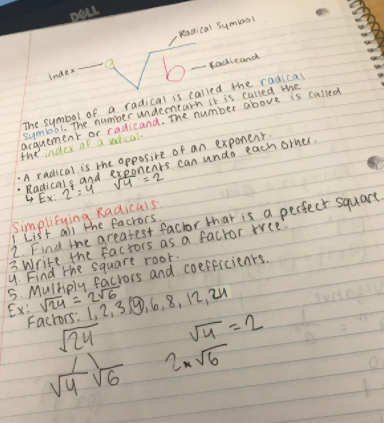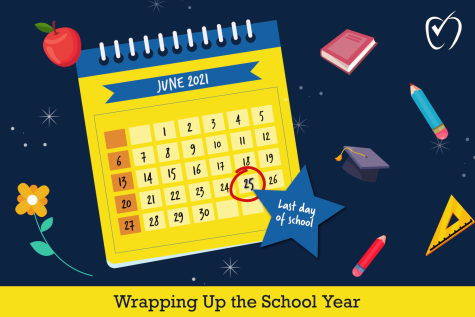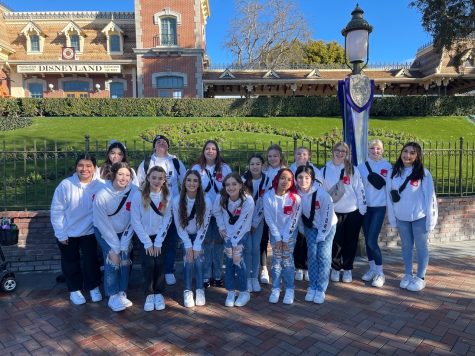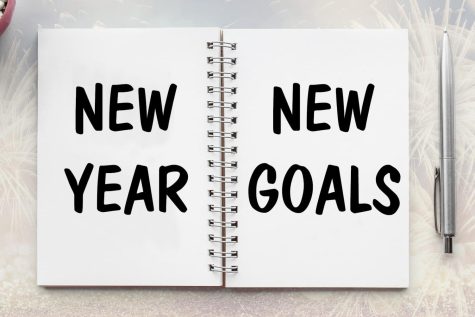Simple Study Tips to Help You Prepare for Big Tests

It’s 5:00 p.m. on a Sunday and the last day before your math midterm. You haven’t studied for it and you don’t feel very prepared. You want to keep watching TV so you tell yourself that you will begin studying for it in 30 minutes or so. Time flies by and it’s already 9:30 p.m. It’s getting pretty late and you should get ready to go to bed soon. Now, you’re feeling pretty tired and unmotivated to study. Instead, you eat a small snack, brush your teeth, hope that you will do good on the test, and then go to sleep.
Procrastination is a big reason why most students don’t study. As a result, they will end up not doing well on the test. Some students might also just feel unmotivated or not in the mood to study. Here are some tips to help you get the most out of your studying, and also to make it more fun or feel more motivated to do it.
Imagine Prep Biology teacher, Sara Camren, gave her input on studying tips.
“You should start studying the first time you get new information that will be on the test,” Camren said. “Study for short periods of time every night before you go to bed and first thing when you wake up. Never more than 20-30 minutes without a break.”
Camren’s advice seems achievable for most students and sounds like it will be helpful. It also sounds like it would help you learn new information quickly. With that amount of time, it doesn’t seem like too much information to take in at once, but also not too little information.
“Writing things down several times is one way to help you remember information,” Camren said. “Another way is to explain that information to someone else, so you take on the teacher role.”
“To help myself study I would write down things in my notes from memory as many times as it took to write them down perfectly without error,” she continued. “I would have one of my parents quiz me depending on what I was studying.”
These statements are very true, as writing things down helps to take in more information rather than just reading it. Taking on the teacher role or having someone quiz you is definitely beneficial as well because it helps you remember things from memory.
Middle school math teacher, Vicki Robinson, also shared some tips on how to study effectively.
“I would go back and review my notes, complete study guides provided by my teacher,” Robinson said. “Create flashcards to review vocabulary, and study in short sessions.”
Similar to what Camren said, writing down information and studying in short sessions with breaks isn’t too much or too little, and it will also help you remember information quicker. Creating flashcards is one of my favorite things to do to study and I always get excited to make them. I get to customize them the way I’d like and use different colors, just like I do with my notes.
Sometimes during the test you’re taking, your mind may just blank. At that point of time, you may just completely forget what the question is asking and what information you need to answer.
“Off to the side, I’ll write down everything I remember about that topic,” Camren said. “I’ll write down other topics/ideas that connect to the things that I’ve written down and then hopefully, that will be enough to help me answer the question.”
This seems very helpful because when you see all of the information at once by writing it down, the answer to the question may just appear in your head right away.
“I mark the question and come back to it later,” Robinson said. “Often there are other questions on the test that will help me go back and answer the one I am stuck on.”
Camren also said something similar to this. I use this method a lot as well. The other questions on the test could sometimes lead you to the right answer.
One tip I know off the top of my head is to chew gum while studying. Then during the test, chew that same flavor of gum and it could help you to remember some information based off of the gum flavor. This also may work with music. Listen to a certain song or playlist while studying, then listen to the same song or playlist during the test. Although, this tip will only work if your school or teacher allows you to chew gum or listen to music in class.
While studying, you should be in a productive area. Consider moving your phone or laptop to a different room if you don’t need them because they could be distracting you. A productive area should have a desk, a comfortable chair, paper/notebooks, colorful markers/pens/pencils, and it should be in a comfortable environment. Sometimes you may prefer it to be quiet, or other times you may want some noise such as music, people talking, etc.
You also should create a study schedule. Studying at the same time(s) each day may be more helpful instead of studying at random times during the day. Like Camren said, you should study right when you wake up and right before you go to bed, with no more than 20-30 minutes without a break.
One last tip is to use materials given by your teacher. These could be study guides, Powerpoints, slides, assignments, or anything else your teacher gives you. You could use these to create your own notes or flashcards.
A few of these tips found from: https://learningcenter.unc.edu/tips-and-tools/studying-101-study-smarter-not-harder/
All in all, preparing for a big test, or any test for that matter, can be very stressful and a lot of work. Studying for these tests can sometimes be very tedious as well. However, you can make it a little more fun and do it the way you would like to do it. Hopefully when preparing for your next big test, you can try some of these tips out to see how they work for you. To those preparing for a midterm, final, or state test, I wish you the best of luck! You got this!




